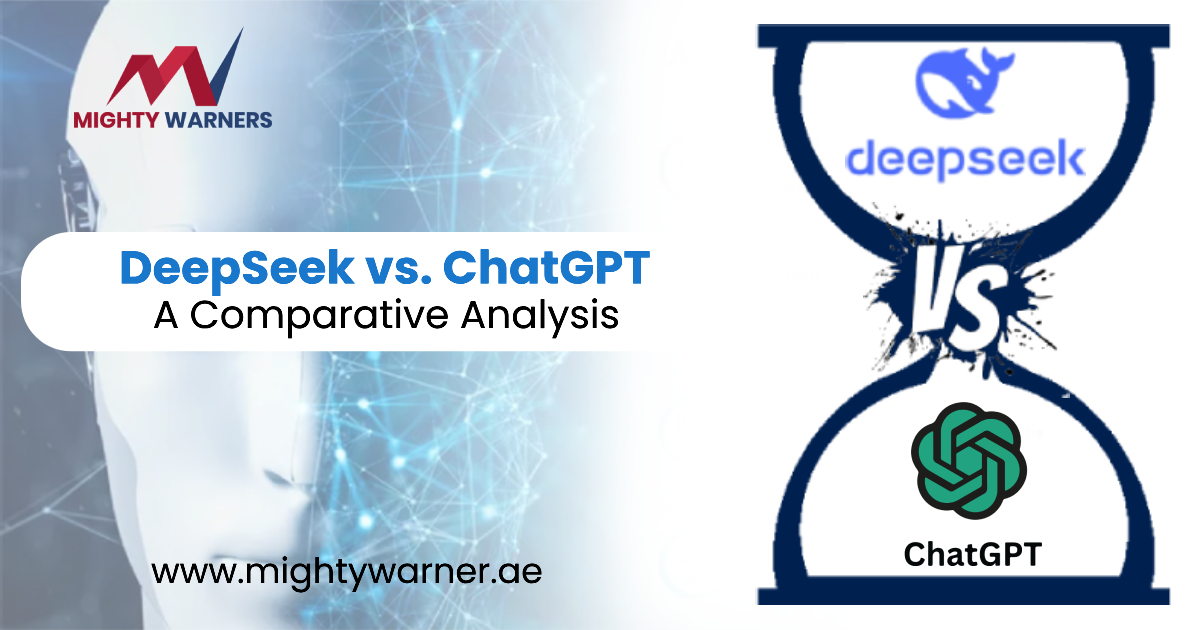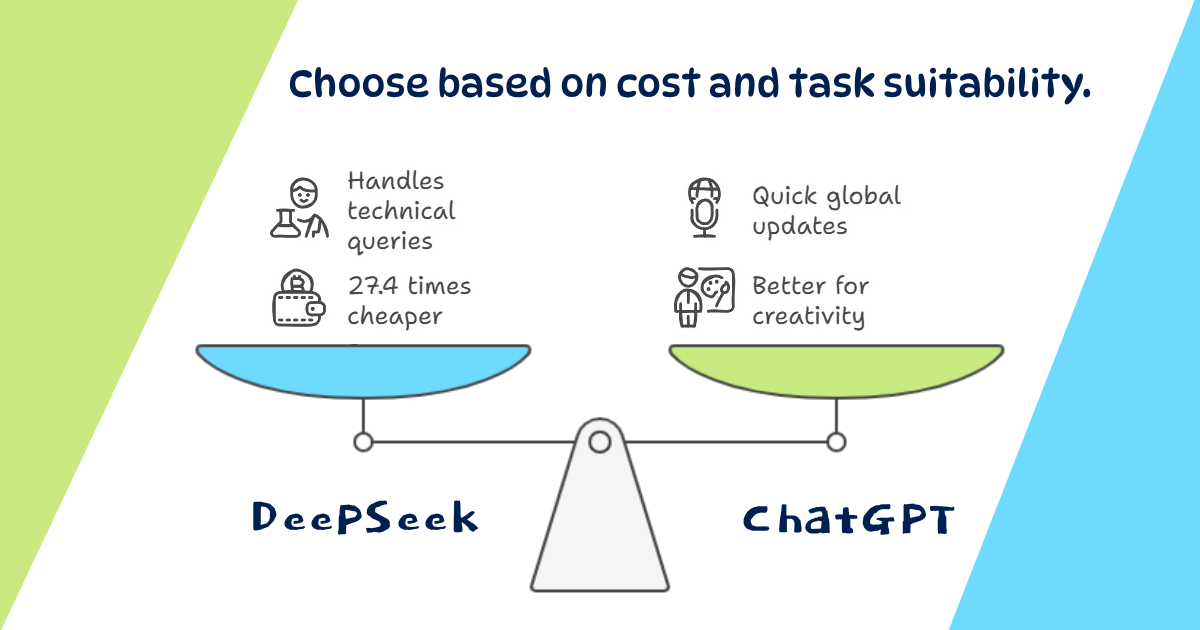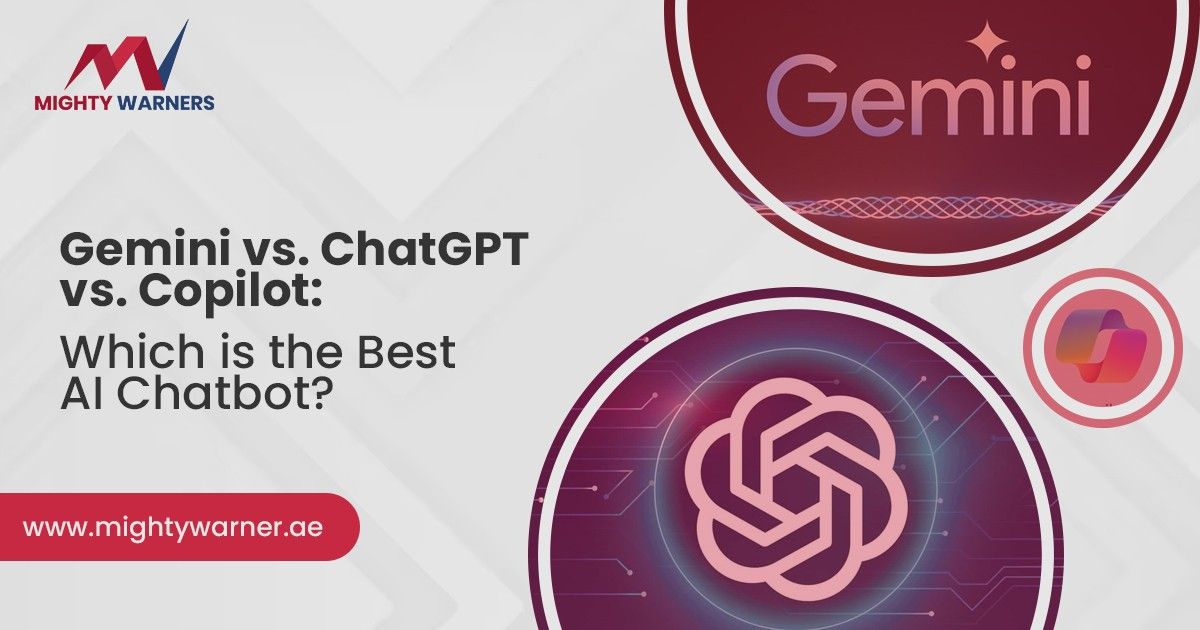The rise of AI models has sparked much debate, especially after DeepSeek made a big splash by overtaking ChatGPT as the most downloaded app on the Apple App Store. This has ignited conversations about which of the two is superior. Is DeepSeek living up to the hype, or is ChatGPT still the reigning champion? In this blog, we’ll dissect the differences and similarities between these AIs, helping you decide which best suits your needs.
What Makes DeepSeek and ChatGPT Similar?
DeepSeek and ChatGPT are sophisticated AI chatbots that assist users with various tasks, from generating content to answering questions. They share similarities in their ability to interact through a conversational interface, making them accessible and user-friendly for many users.
DeepSeek-R1, created by a Hangzhou-based startup, and OpenAI’s ChatGPT, led by Sam Altman, are AI-powered tools that support writing, coding, problem-solving, and idea generation. Each comes with a free version and a paid subscription model. While their interfaces appear pretty similar, the core differences in their functionalities set them apart.
Key Differences Between DeepSeek and ChatGPT
One of the most significant distinctions between DeepSeek and ChatGPT is the focus of each AI model. DeepSeek is more geared towards problem-solving, advanced analytics, and technical tasks. At the same time, ChatGPT is renowned for its natural language processing and excels in tasks that require creativity, conversation, and content creation.
Affordability: If cost is your primary consideration, DeepSeek stands out. A subscription to ChatGPT will set you back $20/month, while DeepSeek offers a much more budget-friendly rate of just $0.50/month. That’s a huge difference, making DeepSeek 27 times more affordable on a per-token basis than ChatGPT.
Performance in Specific Areas: When it comes to generating code (think Python, Java, etc.), solving complex mathematical problems, or offering deep insights into research and analytics, DeepSeek excels. It’s an excellent choice for developers and data analysts. On the other hand, ChatGPT is better suited for generating creative content like blog posts, stories, jokes, and marketing material. It also performs better in conversational settings and offers faster responses to questions about current global events.
Information Depth: ChatGPT may give you quick responses about recent events, but DeepSeek dives deeper into topics, offering more in-depth information and analysis. DeepSeek will likely deliver more accurate and detailed insights for tasks requiring thorough research or complex reasoning.
Where Do Both AI Models Fall Short?
Both AI models have their weaknesses:
DeepSeek: Due to its connections to China, DeepSeek adheres to specific censorship protocols. This means it is less likely to engage in conversations about politically sensitive topics or topics that may be deemed controversial by the Chinese government. If you try to ask about such subjects, DeepSeek will tell you it cannot respond to that query.
ChatGPT: ChatGPT’s biggest struggle lies in its occasional inability to generate contextually accurate responses. Its training data may introduce biases, leading to answers that are factually incorrect or less nuanced than desired. While it generally tries to be neutral, it is not immune to flaws stemming from its training data.
Ethics and Privacy Concerns
Ethics and privacy are significant concerns when dealing with any AI, and both DeepSeek and ChatGPT face their own challenges in these areas.
DeepSeek: Being influenced by Chinese policies, it is more cautious about discussing human rights violations or government critiques. The chatbot is programmed to avoid sensitive topics, and users might find that their questions on politically charged issues are quickly dismissed.
ChatGPT: While ChatGPT is generally open about discussing various topics, it has faced legal challenges, particularly in copyright and data usage. There have been numerous lawsuits regarding using copyrighted materials in training the model, leading to concerns about privacy and content ownership.
Comparison Table: DeepSeek vs ChatGPT
| Feature | ChatGPT | DeepSeek |
| Focus Area | Human-like text generation, creativity | Advanced analytics,data mining, communicationreal-time decision-making |
| Primary Goal | Conversational AI, content creation,and support | Data analysis, predictive modelling, and insights generation |
| Cost / Month | $20/month | $0.50/month |
| Use Cases | Customer support, brainstorming,writing,answering questions | Fraud detection, trend prediction, process optimization, coding |
| Target Audience: | Individuals, businesses, and developers seeking conversational solutions | Enterprises needing deep analytics and business intelligence |
| Ethical Concerns | Potential biases and incorrect responses due to training | data Avoids politically sensitive topics due to censorship protocols |



















